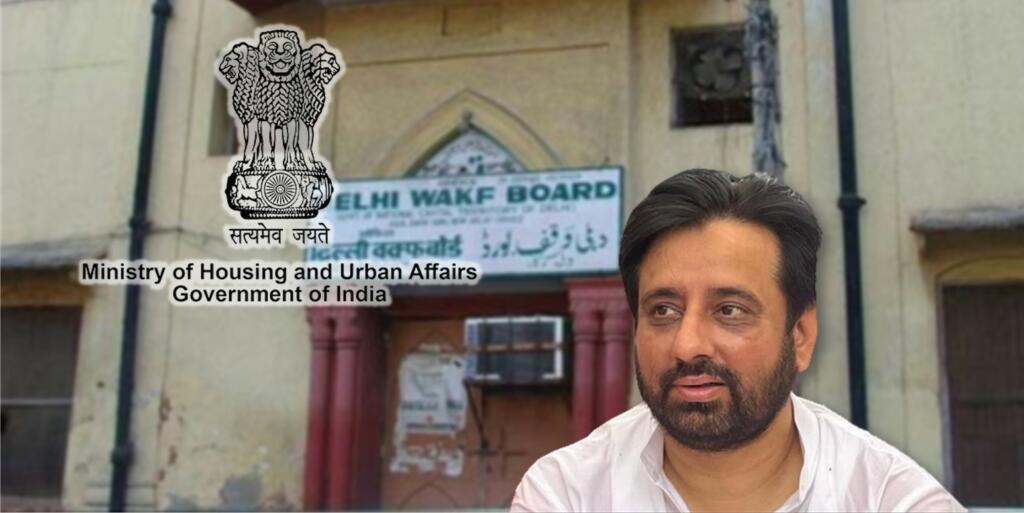The Rouse Avenue court in Delhi recently recognized the Enforcement Directorate’s (ED) prosecution complaint (charge sheet) in a high-profile money laundering case involving the Delhi Waqf Board. This case implicates four individuals: Zeeshan Haider, his firm Skypower, and two others, Javed Imam Siddiqui and Dawood Nasir, along with Qausar Imam Siddiqui.
Central to the case is the allegation of a Rs. 36 crore property transaction, purportedly orchestrated at the direction of AAP MLA Amanat Ullah Khan. The ED accuses these individuals of laundering money through this property deal. Khan himself is alleged to have directly contributed Rs. 8 crore in cash to this transaction.
Special CBI Judge Rakesh Syal has formally taken cognizance of the ED’s charge sheet, ordering copies to be provided to the accused’s legal representatives. A bail hearing for three of the accused—Javed Imam Siddiqui, Dawood Nasir, and Qausar Siddiqui—has been scheduled for January 25, 2024. Additionally, the court will scrutinize the charge sheet and accompanying documents.
The allegations levelled by the ED are significant. They claim that the Rs. 36 crore property was bought with illicit funds at Khan’s behest. The ED’s counsel highlighted ongoing investigations into the roles of other individuals connected to the case.
Special Public Prosecutor Manish Jain, representing the ED, presented arguments detailing the scope of the allegations. These include corruption within the Delhi Waqf Board, with claims of misappropriated properties worth Rs. 100 crore and irregular hiring practices. Jain underscored the seriousness of the offenses, noting the misappropriation and siphoning of funds.
The ED’s investigation also considered earlier FIRs registered by various agencies, including the CBI, the Anti-Corruption Branch (ACB), and Delhi Police. The ACB had specifically requested a probe under the Prevention of Money Laundering Act (PMLA) against Khan, then chairman of the Waqf Board. The alleged properties, funded through illicit means, are located in Delhi, Telangana, and Uttarakhand.
Search operations by the ACB at premises linked to Hamid Ali Khan and Qausar Imam Siddiqui led to the discovery of incriminating evidence, illegal weapons, and three diaries maintained by Siddiqui. These diaries reportedly detail high-value transactions, including the purchase of a plot in Tikona Park, Okhla. This property, bought for Rs. 36 crore, involved a Rs. 8 crore cash payment by Khan and a Rs. 9 crore bank transfer from Zeeshan Haider and Dawood Nasir to Javed Imam Siddiqui.
Questioned about the property’s original owner, Jain identified Aisha Kanwar, who purchased it in 2019, before selling it to the accused in 2021. The ED found an agreement for Rs. 36 crore on an accused’s mobile, supporting these claims. However, a manipulated agreement for Rs. 13.40 crore was also uncovered, indicating evidence tampering.
The ED’s counsel argued for the summoning of the accused, citing a clear case based on a Rs. 27 crore cash transaction evident in the documentation. This development marks a significant turn in a complex case of alleged money laundering and corruption within the Delhi Waqf Board.
Source: ANI News
